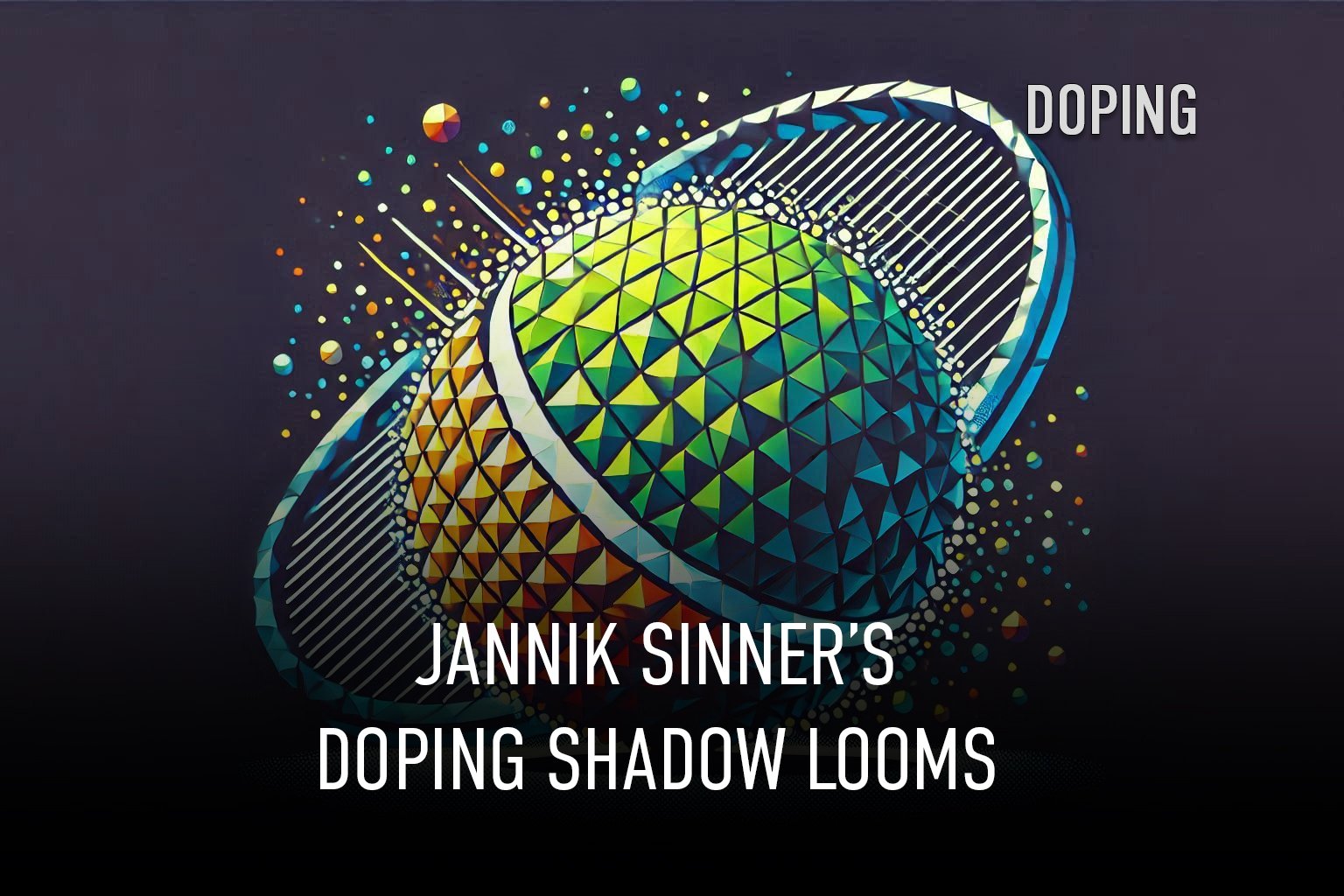JANNIK SINNER’S DOPING SHADOW LOOMS

Jannik Sinner began his Australian Open title defense with a straight-sets victory over Chile’s Nicolas Jarry, winning 7–6(2), 7–6(5), 6–1. But there is more to it than that.
The match became less about the gameplay and more about the contrasting doping histories of the two players, bringing renewed attention to the inconsistencies in how doping cases are handled across professional sports.
Both Opponents’ Doping Overshadows Competition
Sinner, currently ranked world number one, is still under scrutiny after failing two drug tests last March. Although cleared by a tribunal last year due to claims that the anabolic agent clostebol entered his system through massages from his former physiotherapist, the World Anti-Doping Agency (WADA) remains unconvinced. A two-year ban is being sought at the Court of Arbitration for Sport, with a hearing scheduled for April. Despite these unresolved allegations, Sinner has continued to compete at the highest level, even extending his winning streak to 16 matches with Monday’s victory.
On the other hand, Jarry, a world number 36 player, faced a starkly different reality in 2020. After testing positive for two anabolic agents, the International Tennis Federation (ITF) imposed an 11-month ban on the Chilean, despite accepting his explanation that contaminated multi-vitamins prescribed by his doctor were to blame. In a pre-match interview, Jarry expressed frustration, telling Chile’s La Tercera newspaper that he wished he had received the same support as Sinner from tennis authorities.
The contrasting outcomes highlight a troubling inconsistency in how doping cases are handled. While Sinner’s case was kept under wraps until August and accompanied by provisional suspensions that allowed him to continue competing, Jarry faced an immediate public announcement and suspension.
A System Rife with Double Standards
Sinner’s continued success, despite the cloud of doping allegations, underscores a larger issue: the lack of a unified, transparent approach to doping in professional sports. Athletes’ reputations and careers often hinge on subjective interpretations of evidence, leading to perceptions of favoritism and double standards. The leniency granted to some—especially high-profile players—raises questions about the fairness of the system.
In contrast, athletes like Jarry, who lack similar institutional backing or prominence, often bear the full weight of sanctions, even when their cases involve mitigating circumstances. This uneven application of justice not only undermines the credibility of anti-doping efforts but also casts a shadow over the integrity of professional sports.
Match Recap
On the court, Sinner demonstrated his prowess, navigating two tight tiebreaks before dominating the final set. The victory secured his place in the next round, where he will face either Japan’s Taro Daniel or Australian wildcard Tristan Schoolkate. Yet, the cheers from Rod Laver Arena’s terraces couldn’t completely drown out the lingering questions surrounding the Italian star’s doping case.
As the sporting world waits for WADA’s April ruling, the controversy serves as a painful reminder that the fight against doping is far from straightforward. For now, the debate over fairness, accountability, and transparency continues to overshadow the game itself.
